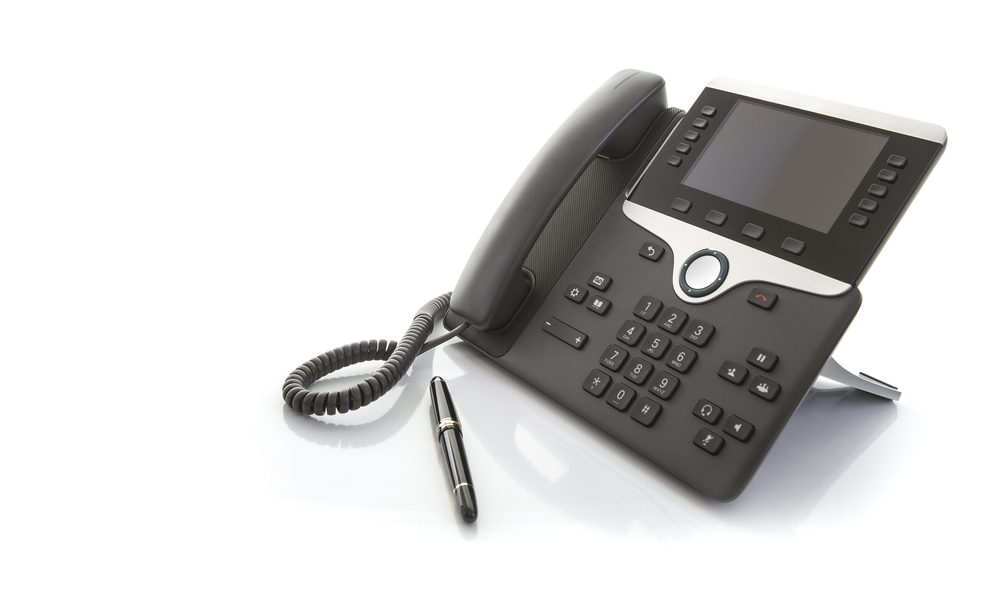What is a Landline Telephone?
A landline telephone service refers to the traditional analogue phone service that is found in many homes and businesses. The ‘landline’ part of the name refers to the fact that they’re using copper wires as the means for transmitting sound from one phone system to the other. This older form of telephony hasn’t changed a whole lot in over a century since it was invented, but that’s mainly because it hasn’t had to, providing a much-needed service in homes and businesses thanks to its relative simplicity and ease of set-up. That said, there are indications that we are starting to rely less on this technology and, as such, the end of the road might be closer than we think for landline phones.
That said, some do note that because of the older technology used in this system, they come with downsides like not being able to use some of the more modern advancements of phone systems, with only more basic features such as caller ID, call blocking, call waiting, and voicemail available.
What is VoIP Phone Service?
A VOIP phone works much like a manual telephone, as far as the user is concerned. You still pick up and speak into the phone, and use it to dial numbers, in most cases. Rather than using the copper wire setup of the traditional phone, however, a VOIP phone system uses the broadband connection that your internet is on, through which sound is transmitted as a digital signal rather than an analogue one.
VOIP systems can come with a range of advanced, digital advancements that simply aren’t available to landline telephones. However, it also means that they are a lot more reliant on your internet connection. Most businesses are able to ensure themselves a reliable and fast internet connection but for the few that might not be able to, VOIP phones might not work as well.

The Differences Between a Regular Business Phone System and a VOIP Phone Service
Simply put, there are a lot of differences between a regular business phone system and a VOIP phone service. The technology behind them is different. They offer different levels of reliability, with VOIP phones being better for those with access to stable and fast internet, and regular phone systems perhaps working better for those who don’t. When comparing the two systems, it’s best to start by looking at the advantages that one has over the other. In this case, VOIP tends to win out in most cases and here is why.
What are the advantages of VOIP?
Free Phone Calls: When it comes to the costs of your system, you have to consider the whole cost, rather than just one aspect. VOIPs do tend to be cheaper on the whole, however, and a big part of this is thanks to the free calls that can be made from a VOIP business phone to other digital call systems (such as WhatsApp, FaceBook Messenger, and Skype.) The digital nature of a VOIP system allows it to connect to other digital call systems with ease.
VOIP Phone Service Offers More Features: As mentioned, the features available to traditional phone users are relatively light. On the other hand, VOIP phone systems can come with features like voicemail-to-email, automatic call forwarding, more sophisticated call routing, virtual receptionist access, and more. This is on top of all of the services traditional phones offer.
Quick Setup: Given the VOIP systems work off of your existing broadband system, they don’t take very long to set up at all. It’s easy to add new devices and terminals to use it, as well.
VOIP Phone Service Allows Calling From Any Device: You don’t technically need a handset to access your VOIP phone service, either. They’re frequently used by workers at their computers, with headsets instead of phones, for instance.
Virtual Numbers Are Portable: VOIPs aren’t tied down to locations like traditional landlines, either. You can access your VOIP from other locations and other devices.
Enhanced Team Connectivity: Connecting your team through VOIP allows them to get in touch with each other much more easily through free internal calls. It’s also easy to set up call routing so that you can quickly forward phone calls to the relevant person within the team without too much complication.
VOIP Phone Service Allows Companies to Expand Global Presence: It’s a lot easier to connect your VOIP to a global network of communication, not only by making it easier to call overseas through digital mediums but by allowing you to connect disparate workspaces, which is becoming increasingly important in an age of remote workers that are working together from across the world.
Conclusion
Simply put, for most business environments, the VOIP phone is going to have an advantage over traditional phones providing additional features, lower costs and flexibility of service that are always worth considering.
Minster Micro, a provider of great IT support and solutions has helped a wide range of businesses convert their phone systems to a VOIP business phone service. To learn more or find out how the team can help you, feel free to get in touch.